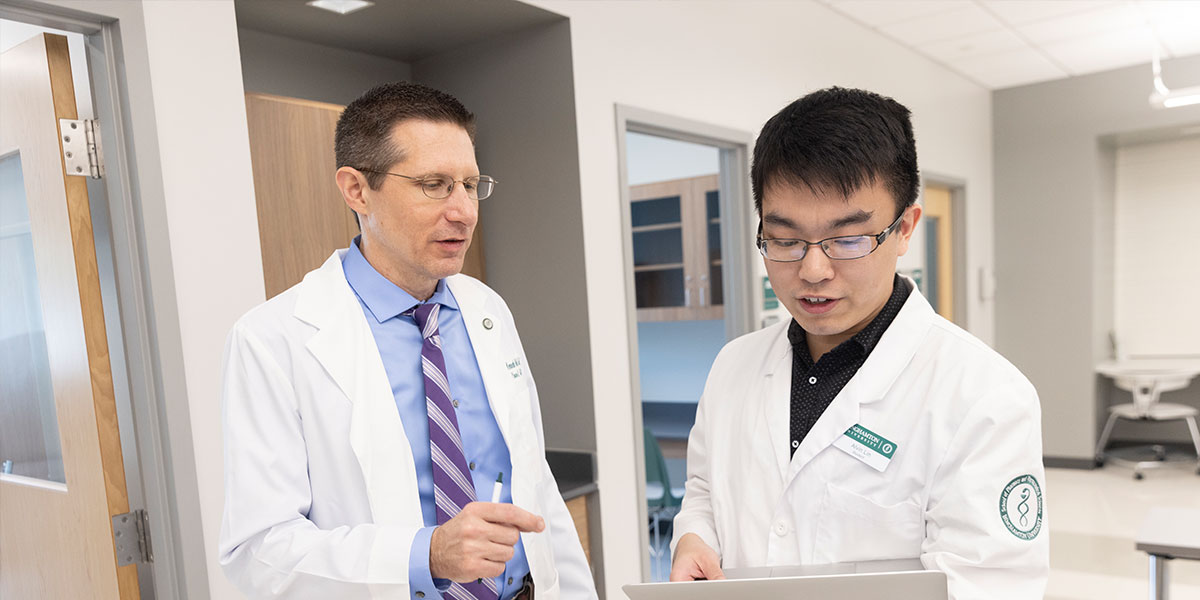Prescription for progress: Binghamton University answering the call for more local pharmacy technicians
Binghamton University is giving local hospitals and pharmacies a shot in the arm when it comes to pharmacy technicians

Starting this summer, the School of Pharmacy and Pharmaceutical Sciences is pioneering a pharmacy technician program. The goal? To give Southern Tier healthcare facilities a shot in the arm by increasing the number of local pharmacy technicians.
Kenneth McCall, clinical professor and co-chair, of the Department of Pharmacy Practice, will direct the Pharmacy Technician Program Microcredential. He sat down with Remedies to talk about the new initiative.
Q: WHY IS THE SOPPS STARTING THE PHARMACY TECHNICIAN PROGRAM?
A: In recent years, we have seen declining numbers of healthcare professionals in our Southern Tier workforce, and a particular need among our community and hospital partners is pharmacy technicians. This free program is designed to take recent high school graduates and train them to be registered pharmacy technicians in the state of New York. But anyone with a GED can apply to be in the program!
Q: WHAT ARE PHARMACY TECHNICIANS, AND WHY ARE THEY SO IMPORTANT?
A: Pharmacy technicians are essential healthcare professionals who ensure the safety of our medication-use system. In addition to dispensing new prescriptions and refill prescription orders, packing and labeling prescriptions, preparing sterile and nonsterile compounded medications, tracking medication inventory and processing insurance claims, the role of the pharmacy technician under the supervision of a pharmacist has been expanded in recent years to include medication reconciliation and screening for medication allergies.
Q: WHAT CAN SOMEONE WHO ENROLLS IN THIS PROGRAM EXPECT?
A: The pharmacy technician program runs from July to November. It’s a hybrid program with both online and in-person learning experiences, along with in-person field placements or rotations within a practice setting for four full weeks, 40 hours per week. Two weeks are completed in a community setting, and two weeks are completed in a hospital setting.
We will launch the program the second week of July, when we will welcome students to our School of Pharmacy and Pharmaceutical Sciences for their orientation. We’ll have weekly sessions for the online learning component to check in with the students as they advance through that material. In August, the students will return to the pharmacy school for hands-on training in our state-of-the-art laboratory facilities. There, they will practice skills such as compounding sterile product preparation, working with hazardous materials, performing calculations and preparing medications.
Q: WHAT CAN STUDENTS EXPECT WHEN THEY COMPLETE THE PROGRAM?
A: When our first class completes the program in November, the students will earn a Binghamton University microcredential and be prepared to take the Pharmacy Technician Certification Exam. For this first cohort, all tuition will be paid by the Mother Cabrini Foundation. The students will also be given a voucher at the end of the program to take the certification exam for free, so that cost will also be covered.

